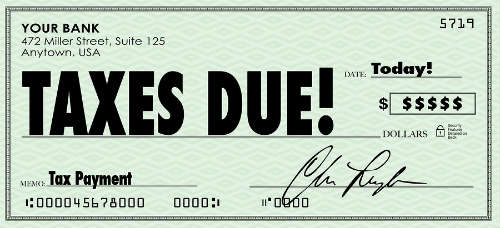If you’re one of the 25% of tax payers who owe money to the IRS when you file your federal income tax return, there are some important things you should know.
First off, even if you can’t afford to pay your entire tax bill, do pay whatever you can to minimize interest charges on any unpaid taxes.
Also, file your taxes on time or request an extension by the due date — and this year, the deadline is April 18th – in order to avoid late-filing penalties.
Additionally, here are 10 things you must know about making federal tax payments, according to the IRS:
Never send cash!
If you file electronically, you can file and pay in a single step by authorizing an electronic funds withdrawal via tax preparation software or a tax professional.
Whether you file a paper return or electronically, you can pay by phone or online using a credit or debit card.
Electronic payment options provide an alternative to paying taxes or user fees by check or money order. You can make payments 24 hours a day, seven days a week. Visit the IRS website at http://www.irs.gov and search e-pay, or refer to Publication 3611, IRS e-File Electronic Payments for more details.
If you itemize, you may be able to deduct the convenience fee charged for paying individual income taxes with a credit or debit card as a miscellaneous itemized deduction on Form 1040, Schedule A, Itemized Deductions. The deduction is subject to the 2 percent limit.
Enclose your payment with your return but do not staple it to the form.
If you pay by check or money order, make sure it is payable to the “United States Treasury.”
Always provide your correct name, address, Social Security number listed first on the tax form, daytime telephone number, tax year and form number on the front of your check or money order.
Complete and include Form 1040-V, Payment Voucher, when mailing your payment to the IRS. Double-check the IRS mailing address. This will help the IRS process your payment accurately and efficiently.
For more information, call 800-829-4477 and select TeleTax Topic 158, Ensuring Proper Credit of Payments. You can also find out more in Publication 17, Your Federal Income Tax and Form 1040-V, both available at http://www.irs.gov.
It’s never any fun to have to write a check to Uncle Sam. And indeed, the IRS says that the average taxpayer who owes at tax time has to fork over a check of about $5,000.
If you have to pay such a lump sum, or even a greater or lesser amount, at least you know the tips above which should keep you out of hot water with the IRS.








